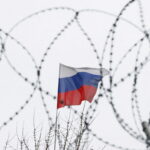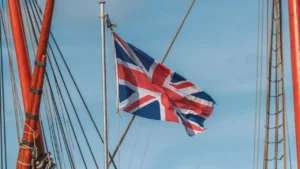War with Ukraine: how Putin dropped the Russian economy
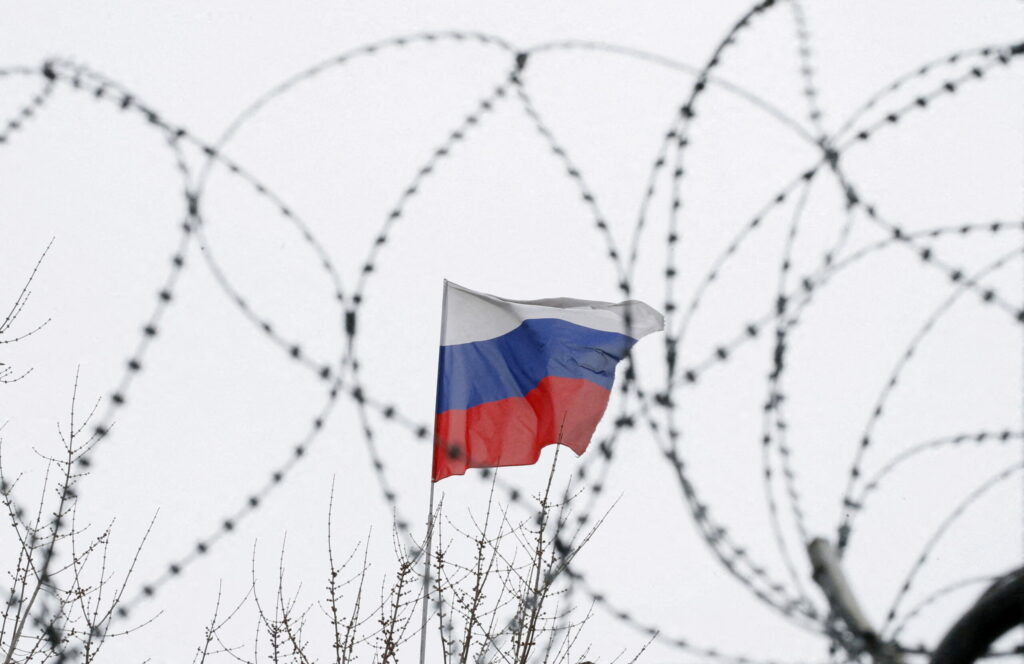
Ukrainians will never forget the morning of February 24th. Russia started a war against Ukraine. However, the Russian authorities on that day were hardly aware of the consequences for their own country. A real war in Russia is yet to come, and it will affect the lives of Russians much more painfully.
Russia has already “outperformed” Iran, Syria and North Korea, becoming the most sanctioned country in the world. The international community has already applied more than 5,530 sanctions to Russia, while 3,616 sanctions have been applied to Iran.
Russian business is in turmoil: the country’s authorities are dragging it down with them. The effect of sanctions against Russia by Western partners is already being felt today. The Russian national currency is falling every day, the queues in front of the banks are getting longer and longer, and the world is closing any transport communication with the aggressor. In business circles today, continued cooperation with Russia is de facto perceived as approval of military aggression against Ukraine.
The speed of Ukraine’s recovery depends on us. But the rate of decline of the Russian economy is increasing, thanks to the reaction of the entire civilized world.
USM tells which economic consequences the logistics industry of Ukraine can suffer, and what smashing blows the Russian economy will suffer.
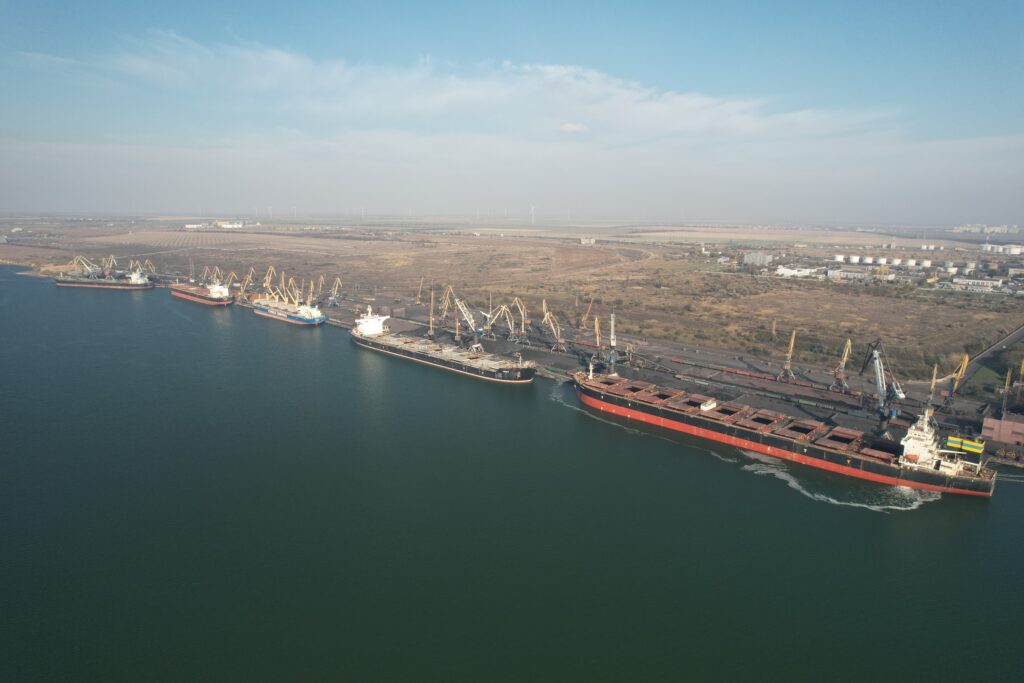
Port Pivdennyi, the deepest in Ukraine. One of the most important logistics hubs in the country
Thus, the Minister of Infrastructure of Ukraine in 2016-2019. Volodymyr Omelian is confident that Ukraine will cope with the refusal to import oil products from the Russian Federation and Belarus.
“Imports of oil products from Belarus and Russia are about half of gasoline and two-thirds of diesel. The issue of replacing the import of petroleum products should simply be worked out by Ukrainian oil traders. They supply petroleum products in sufficient quantities for needs and defense, for the private and commercial sectors, from anywhere in the world. It is not a problem of any kind,” the ex-minister told USM.
But in the Russian Federation itself, according to Omelian, the situation with oil products is expected to be worse. The upcoming problems are caused, first of all, by the toxicity of Russia itself. Companies in all areas (in particular, logistics) do not want to take risks in contacts or business with this country, it can cost too much.
In addition, the withdrawal from the Russian Federation of the world’s largest container lines (CMA CGM, Maersk, MSC) will affect not only cargo transportation in containers. These companies also owned a number of terminals and port complexes, in Russia or abroad, together with the Russians. This means that at least 80% of the export-import operations of the Russian Federation are under attack.
Russian oil is not in demand right now, even at the historical discount of $20 per barrel. At the points where this oil is usually sent for export, the cargo begins to accumulate, and it is not known where to put it next.
The Russian merchant fleet itself is small, so the refusal of most companies to transport any Russian products effectively blocks the country’s ports and its economy.
The positions of Arab companies regarding their withdrawal from the Russian market are not yet clear. Arab countries are rather reserved or neutral about the Russian war against Ukraine.
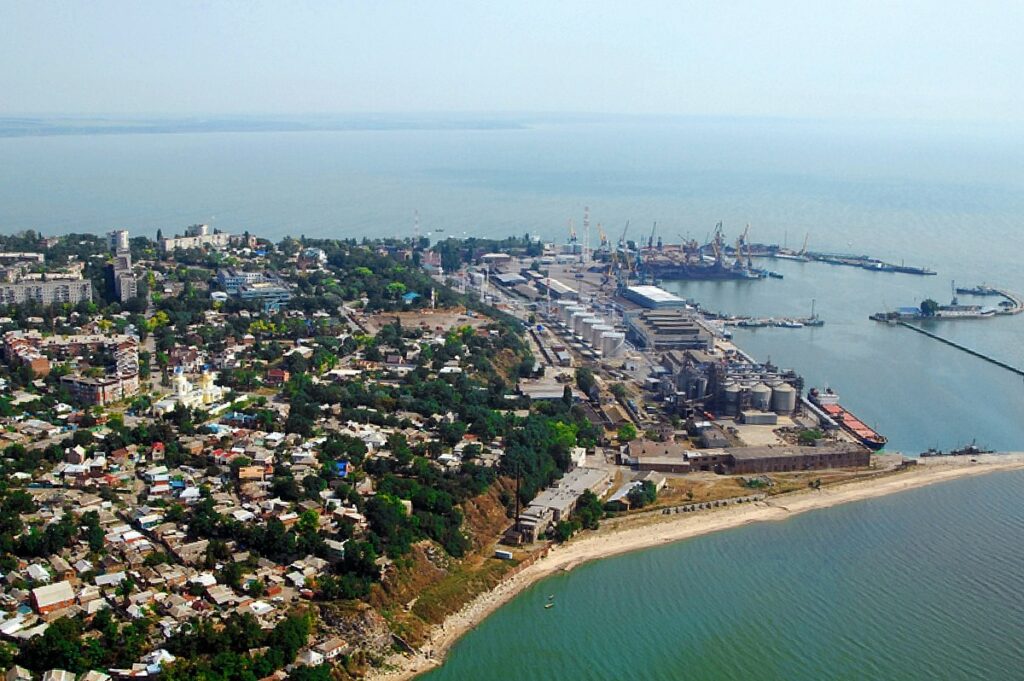
Taganrog port, Russian Federation
If all the key companies leave, Russia will be left with only China, and big problems will begin. China is already taking advantage of the situation by importing a large amount of Russian gas at a price that is several times lower than its cost in the European market, where Gazprom trades. Therefore, Russia will become increasingly dependent on China.
Here, Omelian explains, one can draw a parallel with Iran, which once sent large supplies of its oil products through Azerbaijan and other countries of the East, using “fake” documents. This was necessary so that Iran, despite the huge discounts, would receive at least some profit; but there was a risk that the scheme could be opened in the US or Europe, and then all participants would have problems.
Russia will now try to follow the same path, but the situation with China is ambiguous. If we analyze Beijing’s official statements in recent days, then its political position sounds already 50/50. Chinese news coverage of the war no longer has the same pro-Russian character as before, but on the contrary, demonstrates the atrocities of the Russian troops, the bombing of the civilian population and the actual condemnation of these actions.
So far, Omelian does not see any prospects for Russia, especially amid its current credit ratings. The country’s economy is in a pre-default state, and may subsequently flow into a default one.
USM asked the ex-minister about the fate of Belarus, an ally of the Russian Federation in its military aggression. Once upon a time, the country voiced plans to build a port in St. Petersburg. But will this project turn out well, given the prospects for Russia’s isolation in the world economy?
“Belarus, basically, cannot build anything: they have already run out of money. They are doing such strange things, taking advantage of the fact that Western countries have paid less attention to them. However, if Lukashenko officially joins the war, the attention of the West to Belarus will be maximized,” Omelian comments. – For example, last year it was funny to see how sales of Harley-Davidson motorcycles grew by 1800%, or a sharp increase in imports of shrimp, which are then sold in Russia, and many other things. That is, in fact, Belarus serves as an illegal trade intermediary for the Russian Federation. But this is until similar, mirror sanctions are applied to Belarus.”
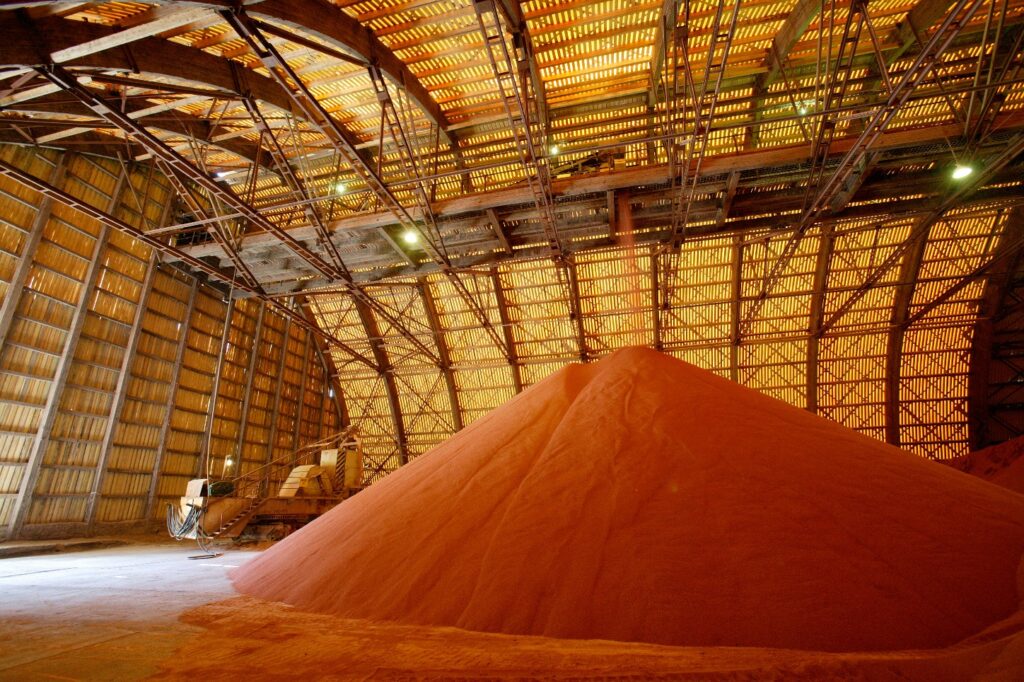
Potassium fertilizers are one of the main export flows of Belarus
In addition, recently the EU introduced a significant restriction (almost to the point of an embargo) on imports of potash fertilizers from Belarus. After the cessation of oil exports from Belarus (where the Russian Nefteservis refines products), this is essentially the end of Lukashenko’s economy. He will have no income from both Ukraine (due to the export of petroleum products) and the EU (due to potassium fertilizers).
Russian business in Ukraine will also suffer. Recall that the Verkhovna Rada (Parliament of Ukraine) recently decided to nationalize all assets related to Russia in Ukraine – the document must be signed by the President.
So, among others, the Mykolaiv alumina plant, which belongs to the Rusal company, and hence to the Russian billionaire Oleg Deripaska, falls under confiscation. Since the beginning of the war, Deripaska has lost about 30-50% of the total ownership structure, mainly because of this enterprise.
“I think that the Russians will lose all their income also from silicon, titanium, quartzite and many other resources that they received from Ukraine and formed the maximum margin already somewhere in offshore accounts or in Switzerland. That is, this movie will also be stopped,” the politician believes.
And the fate of Ukrainian logistics, especially seaports, according to Omelian, depends completely on the outcome of this war: “If the victory ends with the collapse of the Kremlin and the collapse of Russia into several states, then we can say that within a year, Ukrainian ports are reaching double their prewar cargo turnover rates, which will then grow by about 20% per year. If Russia is simply kicked out of Ukraine, it will remain on the border and run around with missiles or armies ever and again, nothing good will come of it.”
Even now, catastrophic consequences are visible from the fact that merchant vessels are in the war zone. Russian troops have already knocked out foreign vessels several times, including the Estonian dry cargo vessel Helt, which eventually sank.

Dry cargo vessel Helt, wrecked by invaders

Millennial Spirit tanker attacked by Russian missile
“When you have an inadequate neighbor, there will always be insurance risk. Companies are unwilling to spend time or money on insurance when they can work stably in a different water area and earn the same percentage. So it all depends on what will be our victory.
The general toxicity of Russia is destroying its economy, which will also affect logistics. In fact, the Russian Federation will turn into North Korea, with a minimum of contacts with the outside world and a closed economy. Once upon a time, the USSR built something similar, but at least there were opportunities there. Now they are simply switching to cabbage soup, vodka and bast shoes. Even their vaunted VAZ will not save them, because due to restrictions on the import of spare parts and components, they hurt their own production,” Volodymyr Omelian summed up.
The Head of Stark Shipping, Kostiantyn Romashko, believes that there are not many options left for Ukrainian port and river logistics in which it would be possible to restore the pre-war indicators of cargo transportation, even if the Russian Federation stops military aggression soon.
In the speaker’s opinion, Ukraine will have a mediocre harvest: it is impossible to sow without loans and fertilizers when there are mines and unexploded shells everywhere. The direction of transportation of imported cars in containers or ro-ro will not be restored soon. The only hope is Ukraine’s accession to the European Union.
The EU, with the support of the United States, will help restore the infrastructure destroyed by the occupier, in particular, using frozen Russian assets. The European Union will act as a kind of guarantee that it will be possible to continue developing port and logistics projects in Ukraine. But it is especially important that joining the EU will allow Ukraine to return most of the refugees who, under other circumstances, would probably prefer to stay in European countries.
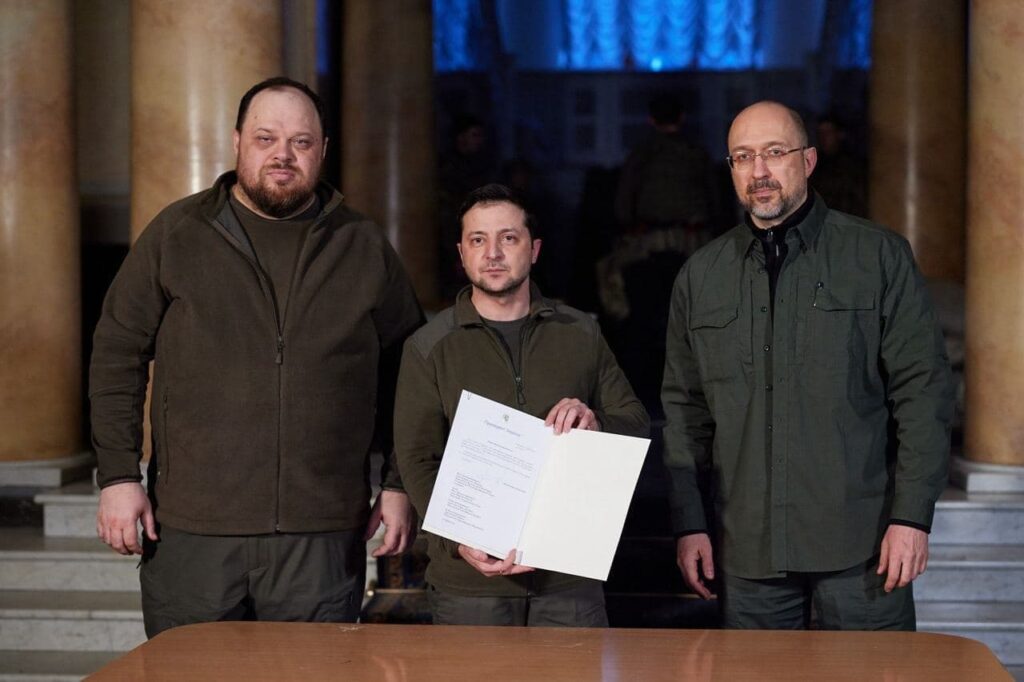
President of Ukraine Volodymyr Zelenskyy signed an application for Ukraine’s membership in the EU on February 28th
“Yes, the European Union is not a defense bloc, and in the future we will need to focus on the development of our military-industrial complex, missilery and, especially, the navy in order to avoid blockades of our ports in the future. If we want to continue to have maritime trade, our navy must be able to protect this trade and prevent a repetition of the situation when the Russian Federation completely blocked our maritime communications and engaged in piracy in our territorial waters, firing at peaceful merchant vessels. One of the options for the rapid replenishment of our Navy is to receive part of the reparations, but not in the form of money, but in the form of Navy ships, by analogy with how the USSR received military and merchant vessels from Germany after the end of World War II,” the expert notes.
Romashko also states that, by analogy with land-based humanitarian corridors, it is necessary to demand and agree on a “marine humanitarian corridor”. This is necessary to ensure that foreign vesels that are stuck in Ukrainian ports can leave. In total, foreign crews of about 40 vessels are now in danger.
A humanitarian disaster is brewing in Mykolaiv, where vessels have already been shelled – many of them are running out of provisions and drinking water, and because of constant shelling and lack of food for city residents, it is virtually impossible to provide food supplies to vessels. Why the aggressor is holding the foreign naval fleet in Ukraine hostage is unknown. Perhaps this is one of the enemy’s pressure points in the negotiations.
“Unfortunately, I am not very optimistic about the war ending soon, because there are no other options for Ukraine but to hold its ground, wear down the enemy, and wait for the sanctions to take effect, many of which have a delayed effect. It will take at least a month for Russian citizens to feel the full impact of the sanctions. I think the next few weeks are key to figuring out where we can finally stop the aggressor. This is important for negotiating the end of hostilities,” says the Head of Stark Shipping.
The only chance to restore the domestic port industry is to keep Ukraine as an integral and sovereign country. If the hostilities end with the creation of any “republics” in the south or the inclusion of the southern regions into the Russian Federation, this will lead to a complete collapse of the entire port industry of the country. And there is no need to have illusions that Russian cargo will go here: it is not so. The Russian Federation has long ensured independence in this area, and Ukrainian ports, like Crimea, will be under sanctions. In addition, the cargo base of the southern regions will not be enough to provide at least a slightly sane load.
“That’s why we are helping the army and keep our fingers crossed for our diplomats, on whom it depends what the future of Ukrainian ports will be and whether it will be at all,” says Konstiantyn Romashko.

Shell of occupiers on the territory of the port of Olvia
Knock-on effect and further scenario
The Russian economy is being destroyed not only by the actions of its authorities and Western sanctions. Europe has shown that it is ready to abandon relations with Russia in certain areas, and then business around the world “picked up” the trend.
Even in states that have kept silent about the Russian aggression against Ukraine, companies can support a general “boycott” due to uncertainty about the integrity of a partner like Russia. And it will be easier for many entrepreneurs to completely refuse to work with Russia than to understand the sanctions.
Companies that have not yet abandoned their activities in the Russian Federation will have to make this decision, otherwise they will be left without partners and cause discontent among the population, which in almost all countries of the world strongly supports Ukraine. A vivid example is Georgia, which at first tried to build a neutral position on the issue of war, but received massive protests in the country in response. As a result, Bank of Georgia JSC, one of the largest commercial banks in Georgia, requires new clients to sign a document stating that they support Ukraine and condemn Russia’s military aggression.
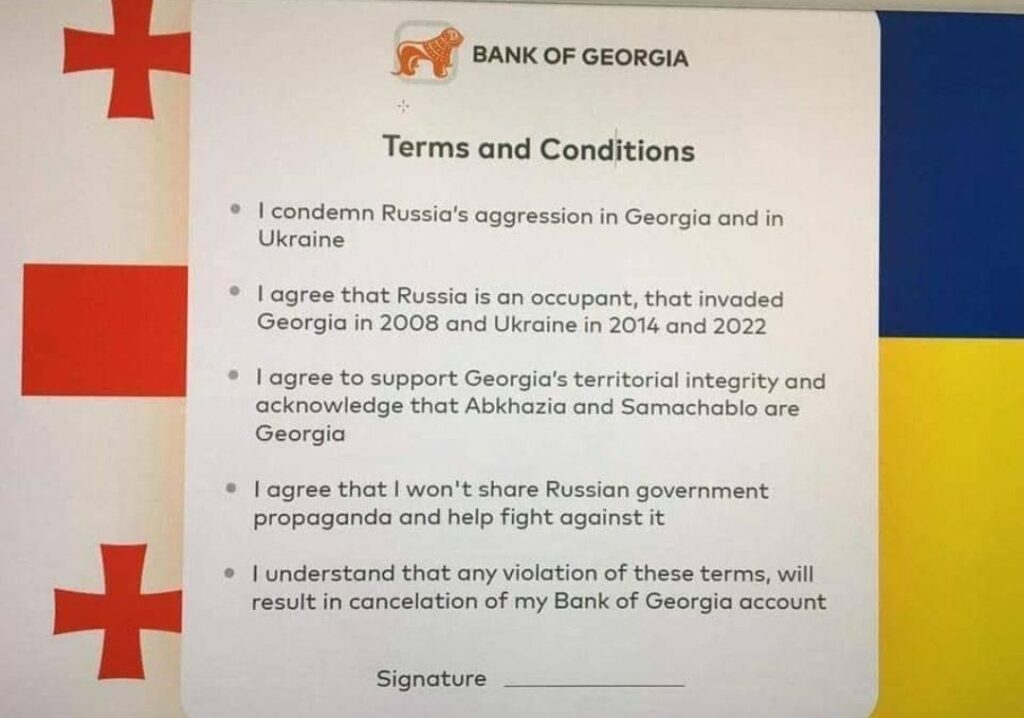
The Russian oligarchs also began to suspect, where the Russian economy is heading – in almost two weeks of Russian military aggression in Ukraine, they have already lost billions of dollars each. Vagit Alekperov (Lukoil) has already lost $10.5 billion – more than half of his fortune. Alexey Mordashov (Severstal) lost $5.6 billion, Gennady Timchenko (Volga Group) – $4.6 billion. Some oligarchs have already begun to speak out against the war, because they feel not only the pressure of the war on their wallets, but also the grinding of the bars over their own heads – the billionaires’ private planes are not allowed out of Russia.
Russian enterprises will soon feel the pressure as well. The Russian Federation is trying to promote its own production of aircraft, missiles and cars. But Russian factories do not have a closed production cycle: many parts of the enterprise are imported from abroad.
A tidal wave has already begun in the factories: on March 5th, in Nizhnekamsk, workers at the Gemont oil refinery staged a strike – they were paid wages at the old rate, people demand that they be compensated for the difference. The disruption of the supply chain will hit the refineries next: the amount of production will be reduced many times which will be followed by mass layoffs. Perhaps they will stage strikes, but this will only intensify the crisis at the plants.
Russia will also lose planes. Russian airlines with leased planes are advised to stop flying abroad as of March 6 and return the planes to lessors. Russia leases 515 of its 980 passenger planes with a market value of $10 billion. With the termination of flights companies hope to keep these planes. Therefore, many will not have time to “escape” from the country either.
Ultimately, the consequences of the ambitions of the President of the Russian Federation will affect every citizen of the country. Banks, streaming services, clothing and car brands, large restaurant chains and other private traders announce the termination of supplies or even exit from the Russian market. If the Cartier or Rolls-Royce brands are more about the families of officials than ordinary Russians, then the departure of global container carriers from the Russian Federation should really alarm citizens. The containers contain household appliances, clothes and any other goods, without which it is now impossible to imagine a comfortable life for a modern person.
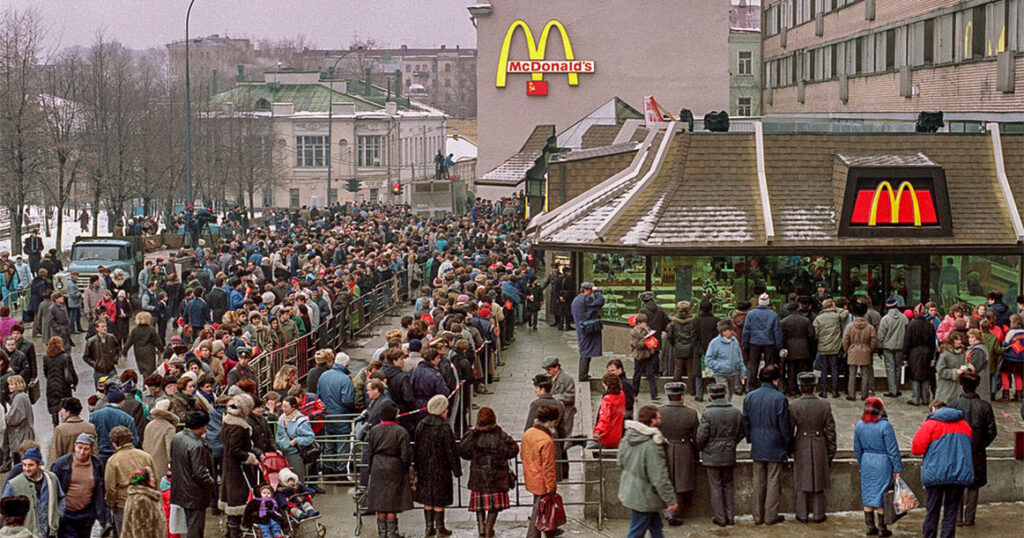
A queue for the opening of McDonald’s, Moscow, 1990

A queue of Russians before McDonald’s offices across the country close, 2022
Soon, the Russian Federation will not be able to finance the army and the defense industry, since it will be forced to spend funds on at least some support for the national currency and attempts to delay the onset of an economic collapse throughout the country.
As a result, sooner or later Russia will face massive layoffs, unemployment and food riots. Publications that could open the eyes of the Russians to what is happening are closing down or urgently evacuating their employees from the territory of the aggressor country. The reason for this is the law on criminal punishment for the dissemination of “fakes” about the military aggression of the Russian Federation in Ukraine. People should not call a war a war, and also discredit the country’s military forces. That is, when the Russians begin to find out the truth about the conscripts who died in Ukraine, it will be too late to talk about it. There will be complete isolation, Russians will not have the opportunity to see how people live abroad. The whole of Russia will finally shrink into itself and become one big prison, where, as they say, “half sit and half guard”.
Olha Horbenko.
